Meet the Wildlife Conservation and Science team
From biology to animal welfare, education and behaviour change, meet some of the members of our Wildlife Conservation and Science team.
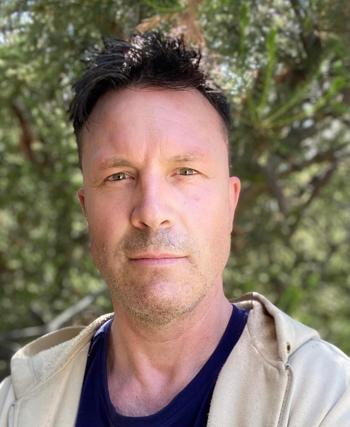
Nick Clemann, Senior Biologist Herpetology
Pronouns: He/him
Nick has been leading programs on threatened wildlife for more than 25 years, and currently runs programs on threatened reptiles and frogs in the Australian alps, threatened snakes in the Mallee region in western Victoria, and threatened frog programs in East Gippsland. As well as working in most ecosystems across south-eastern Australia, Nick contributed to three multinational wildlife research expeditions in Uzbekistan, Kazakhstan, and Argentina. He holds an honorary position with Museums Victoria, is a former member of the Victorian Government’s Translocation Evaluation Panel, and continues to advise governments on threatened species and emergency management of wildlife. Nick is the reviewer for submissions of reptile and frog records to the Victorian Biodiversity Atlas. He is a member of numerous recovery teams for threatened reptiles and frogs, including: Victorian Grassland Earless Dragon, Alpine Tree Frog, Growling Grass Frog, Baw Baw Frog, and Spotted Tree Frog. As well as authoring many scientific papers, Nick is the senior author of the book Frogs of Victoria: A Guide to Identification, Ecology and Conservation (CSIRO Publishing). He has co-supervised Honours, Masters, and PhD programs for numerous students.
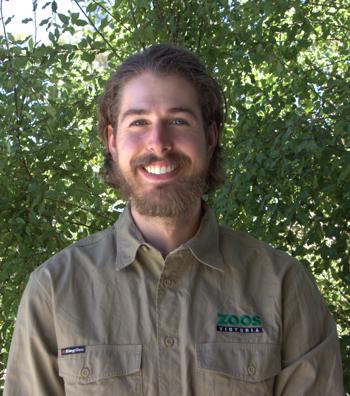
Dr Aaron Grinter, Plains wanderer Project Officer
Qualifications: PhD, Bachelor Arts (Hons)
Thesis topic: Systems ecology and human-nature interfaces
Published papers: https://scholar.google.com.au/citations?hl=en&user=GDErrhUAAAAJ
Pronouns: He/him
Aaron Grinter is an ecologist with an interest across flora, fauna, and ecological communities. With his PhD research focusing on big picture, hierarchical ecological systems and their function, he approaches the conservation of threatened species in their entire context. Aaron joined the Zoo from the Victorian Department of Energy, Environment, and Climate Action, where he worked in the regional natural environment team, with a broad scope from working with traditional owners, agencies, and community groups, to providing advice around wildlife, statutory planning, responding to wildlife emergencies, as well as protecting locally-important threatened species. During his time at DEECA, he led projects to study the vulnerable Grey-headed Flying Fox colony in Bendigo, endangered Murray Darling Carpet Python, critically endangered Ballantinia pumilio, and others. His priority project was the critically endangered Plains-wanderer, leading a longitudinal bioacoustic monitoring program to track the population dynamics of the species in more than 100 sites across the state and working with farmers to manage grassland habitat. He continues the bioacoustic monitoring program in his current role, as well as assisting to plan a future captive-to-wild translocation program.
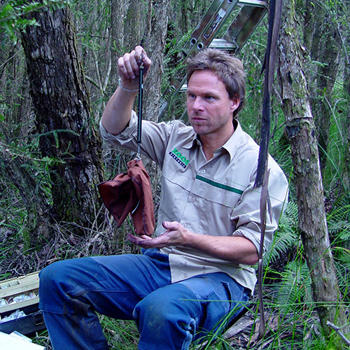
Dr Dan Harley, Threatened Species Project Officer
Qualifications: Bachelor of Science, PhD
Thesis topic: The life history and conservation of Leadbeater’s Possum (Gymnobelideus leadbeateri) in lowland swamp forest
Dan Harley has been monitoring this population for over 20 years. He also leads nest box research on the possum at several highland locations, including sites burnt on Black Saturday at Lake Mountain and Mt Bullfight. He worked for the South Australian Government on a range of threatened fauna recovery projects, covering a diverse range of species from legless lizards through to Malleefowl and Bush Stone-curlews. He joined Zoos Victoria in 2010, and his role includes identifying which species require urgent management interventions, developing the strategic objectives for those species, and ensuring that the captive-breeding programs are strongly linked with in situ recovery measures. Habitat restoration, translocation and genetic rescue are major features of his current work.
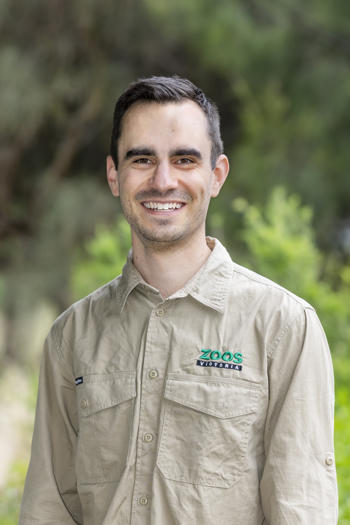
Dr Nick Bradsworth, Helmeted Honeyeater Field Officer
Qualifications: Diploma of Conservation and Land Management; Bachelor of Environmental Science (Hons), PhD (Ecology)
Thesis topic: Movement ecology of a top-order predator in an urbanizing landscape: Powerful owls (Ninox strenua) and their response to urbanisation
Published papers: https://scholar.google.com.au/citations?user=qPvUso0AAAAJ&hl=en
Pronouns: He/Him
Nick Bradsworth is an ecologist with over a decade of experience working with threatened bird species. While completing a Bachelor of Environmental Science (Wildlife and Conservation Biology) at Deakin University, Nick worked extensively on the Helmeted Honeyeater Recovery Program as an experienced field and supplementary feeding volunteer. This program established a keen desire to pursue scientific research in threatened bird conservation, so as a postgraduate he commenced honours and then a PhD at Deakin University on Melbourne’s threatened Powerful Owls. His research entailed documenting their fascinating nocturnal movements with GPS transmitters to understand how urbanisation is impacting their space use, and working with local council, and land managers to protect vulnerable tracts of urban owl habitat. He has also worked on the critically endangered Norfolk Island Morepork with Monash University, and with the Threatened Bird Network of BirdLife Australia. Nick joined the Wildlife Conservation and Science team in July 2021 as Helmeted Honeyeater Field Officer to assist Zoos Victoria establish additional populations of “HeHos” through translocations and captive-releases in locations away from Yellingbo Nature Conservation Reserve (where majority of the wild population currently exists). He is excited to be working with the Helmeted Honeyeater again, contributing actively to their recovery efforts.
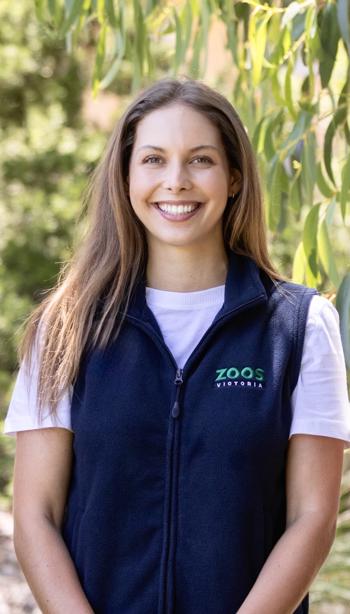
Ebony Gatto, WCS Intern
Qualifications: Bachelor of Environmental Science (Wildlife and Conservation Biology)
Pronouns: She/her
Ebony Gatto recently completed her Bachelor of Environmental Science (Wildlife and Conservation Biology) at Deakin University in 2024. Awarded a 2022 New Colombo Plan Scholarship & Fellowship by the Department of Foreign Affairs and Trade for French Polynesia, India, Cook Islands, Malaysia and Japan, she also studied at the University of the South Pacific in Rarotonga and Sophia University in Tokyo. Her volunteer and study experiences have encompassed both local and global conservation efforts, including wildlife monitoring and research of both terrestrial and marine mammals, reptiles and birds. Ebony is excited to take up the role as a Baillieu Myer Intern within the Threatened Species team in 2025, supporting Zoos Victoria’s Fighting Extinction programs to aid in the conservation and recovery of Victoria’s most vulnerable species.
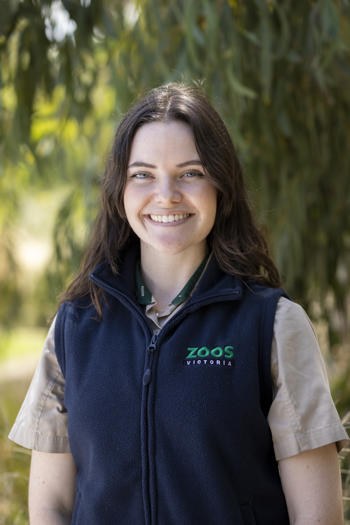
Angie Symon, WCS Intern
Qualifications: Bachelor of Environmental Science (Hons)
Thesis topic: Foraging ecology of the eastern barred bandicoot across its translocated range
Pronouns: She/they
Angie recently graduated a Bachelor of Environmental Science (Honours) from Deakin Univeristy and is passionate about facilitating threatened species recovery and ecological restoration through on ground research and accessible science communication. During her honours research, Angie investigated the foraging ecology of one of Zoos Victoria’s FE species; the eastern barred bandicoot. This research focused on eastern barred bandicoots across translocation sites in Victoria, assessing potential impacts of conservation translocations outside of species’ historic distributions. Angie has been with Zoos Victoria since 2022, previously working in Visitor Services at Healesville Sanctuary before starting as a Conservation Intern in 2025, where they look forward to making a meaningful contribution to threatened species recovery and research.
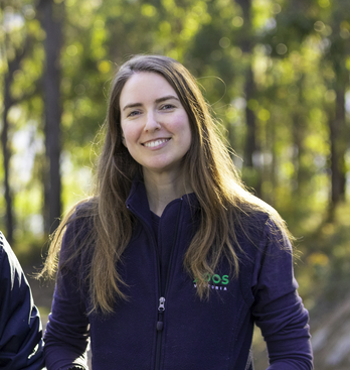
Dr Phoebe Burns, Native Rodent Biologist
Qualifications: Bachelor of Science, Master of Science, PhD
Thesis topic: Testing the decline of the endangered New Holland Mouse (Pseudomys novaehollandiae); MSc: Post-fire distribution and detectability of the Smoky Mouse (Pseudomys fumeus)
Published papers: https://scholar.google.com.au/citations?user=hqPXKxYAAAAJ&hl=en
Pronouns: She/her
Dr Phoebe Burns is a threatened species ecologist and native Australian rodent expert with over a decade of experience researching and managing endangered mice. Her work focuses on developing management strategies and interventions to help conserve endangered native rodent species such as the Pookila and Smoky Mouse. This encompasses long-term monitoring programs, translocations and reintroductions, genetic rescue, and fire and habitat management. Phoebe chairs the National Pookila (New Holland Mouse) Recovery Team and the National Smoky Mouse Recovery Team, and is a member of the National Broad-toothed Rat Recovery Team. She enjoys working collaboratively with land management agencies, Traditional Custodian groups, students, and other scientists to design, implement, and adapt effective on-ground recovery actions. Recently, this has included the reintroduction of the Pookila to the Royal Botanic Gardens Cranbourne, after a 50-year absence.
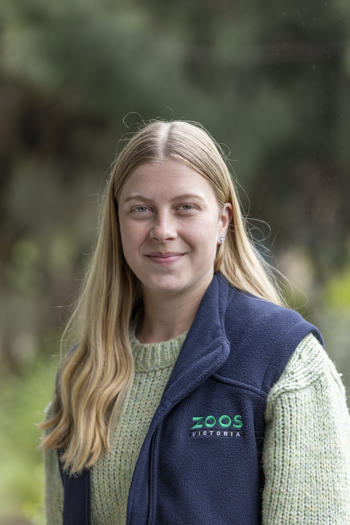
Nadia Nieuwhof, Pookila Field Officer
Qualifications: Bachelor of Science, Master of Ecosystem Management & Conservation
Pronouns: She/her
Nadia has been with Zoos Victoria since early 2023, having started her journey as a Conservation Intern with the Threatened Species team. In this role she spent a year participating in a wide array of projects with the team, but, in particular, became a keen advocate for the Pookila, a native mouse on the Zoo's FE list. After finishing her 12 month internship, she rolled on into her new role of Pookila Field Officer. This role sees her traveling around NSW and Tasmania hoping to determine where the species is persistsing and how we can best ensure they thrive across their entire national range. Prior to her starting at Zoos Victoria, Nadia has also spent time with AWC in Western Australia, as well as a short stint with Parks Victoria. She looks forward to sharing the findings of her exciting Pookila work, both from her intenship and current role, over the coming years, and diving into more native rodent and small mammal work with the zoo.
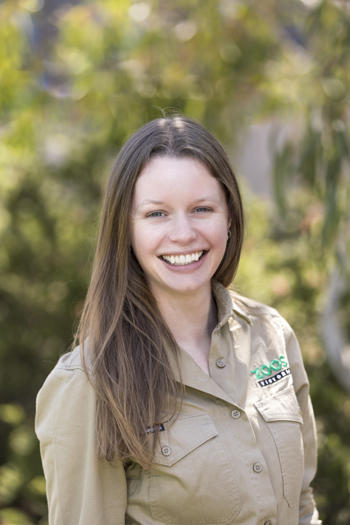
Dr Amy Coetsee, Threatened Species Biologist
Qualifications: Bachelor of Science (Hons), PhD
Thesis topic: Reintroduction Biology of the Eastern Barred Bandicoot
Pronouns: She/her
Dr Amy Coetsee is a Threatened Species Biologist at Zoos Victoria, fighting the extinction of some of Victoria’s most endangered species. Amy completed her studies at the University of Aberdeen, Scotland, and her PhD at the University of Melbourne, Australia, on the reintroduction biology of the mainland Eastern Barred Bandicoot, a species listed as extinct in the wild. Amy has a strong background in conservation, research, government policy and science communication, having worked at Parks Victoria, the Bureau of Meteorology and Zoos Victoria. Amy currently leads several recovery projects, specialising in Eastern Barred Bandicoot recovery, where she has over 15 years of experience. Amy is involved in all aspects of eastern barred bandicoot conservation including planning, monitoring, research, threat mitigation and community engagement. In 2019, Amy was chosen as an Australian Superstar of STEM and is a role model to many aspiring young scientists and conservation enthusiasts. She has a commitment to caring for wildlife and wild places and seeing the Eastern Barred Bandicoot removed from the threatened species list when they are safe back in the wild.
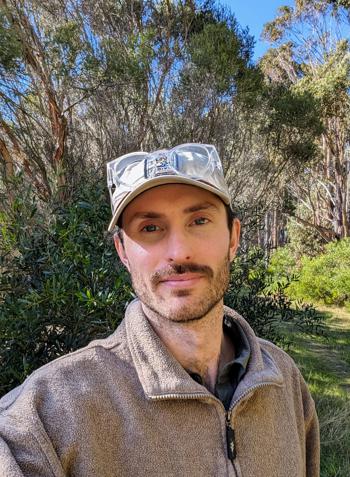
Dr Darcy Watchorn, Threatened Species Biologist
Qualifications: Bachelor of Biological Science (Hons); PhD
Thesis topic: Mammal conservation in the face of fire and invasive predators
Published Papers: https://scholar.google.com.au/citations?user=qFmp3u0AAAAJ&hl=en
Pronouns: He/him
Darcy Watchorn is a threatened species ecologist with over a decade of experience. His work focuses on the research and the applied conservation of Australia’s threatened fauna—particularly mammals—as well as disturbance processes like fire, invasive predators, and climate change. Darcy's Honours research explored koala social interactions and home range dynamics, providing insights into their behaviour in high-density populations. In 2024, he completed his PhD at Deakin University, where he investigated the combined impacts of fire and invasive predators on native fauna and assessed the effectiveness of artificial refuges in supporting post-fire wildlife recovery. Darcy joined the Threatened Species Team at Zoos Victoria in 2018, focusing on the conservation of the critically endangered Leadbeater’s possum through population monitoring, movement ecology, and habitat characterisation. In his current role, he leads translocation assessments aimed at mitigating the risks posed by climate change and wildfire. Darcy is also an honorary research fellow at Deakin University, where he contributes to ecological research and species conservation.
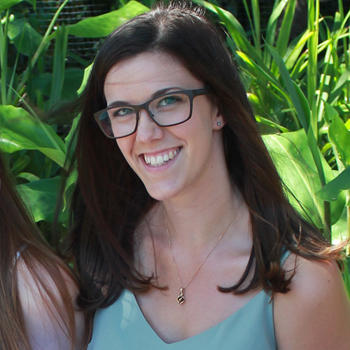
Arabella Eyre, Leadbeater’s Possum Field Officer
Qualifications: Bachelor of Science, Master of Science
Thesis topic: Using species distribution modelling to guide surveys for Leadbeater’s possum outside of its known range
Pronouns: She/her
Arabella Eyre is the Leadbeater’s possum field officer in the Wildlife Conservation and Science team and Zoos Victoria. Arabella completed her Masters of BioSciences at the University of Melbourne where she studied the distribution of the Leadbeater’s possum. This involved the use of computer modelling and decision analysis to target camera trapping surveys for this Critically Endangered species in North East Victoria. Since 2019 Arabella has worked as a field officer at Zoos Victoria involved in multiple aspects of the Leadbeater’s possum field program including Elliott trapping, camera trapping, nest box monitoring, radio tracking and translocations. She has a passion for ensuring the effective conservation of Australia’s threatened species.
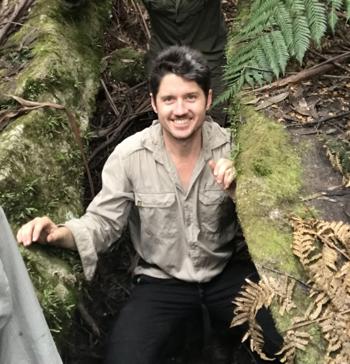
Deon Gilbert, Threatened Species Biologist – Herpetofauna
Qualifications: Bachelor of Science, PhD Candidate
Thesis Topic: Conservation Biology of the Baw Baw Frog
Pronouns: He/him
Deon Gilbert has been working with threatened reptiles and amphibians for over 20 years both regionally and internationally. He joined Zoos Victoria in 2010 and works with a wide team of stakeholders to manage and develop strategic direction for the Zoos Fighting Extinction herpetofauna conservation programs. Deon leads the conservation recovery for the Baw Baw frog which includes in situ and ex situ management interventions and wild population monitoring as well as developing reintroduction techniques for translocation of captive bred stock back to wild habitat. He is currently completing his PhD focusing on the conservation biology and recovery of the Baw Baw frog.
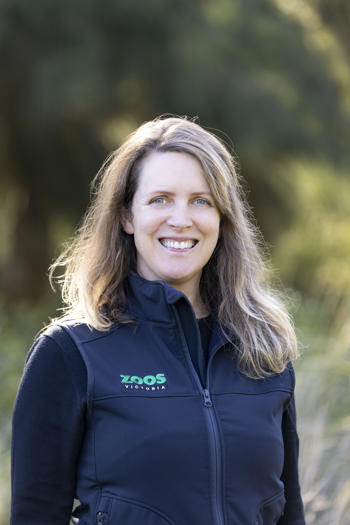
Chris Hartnett, Threatened Species Program Coordinator
Qualifications: Bachelor of Science, Master of Science, Bachelor of Arts (Hons) (Fine Art)
Thesis topic: Female mate choice in the Eastern Barred Bandicoot
Pronouns: She/her
Chris Hartnett is a Threatened Species Program Coordinator in the Wildlife Conservation and Science Department at Zoos Victoria, which is committed to recovery actions for 27 priority species that have been identified as being at risk of extinction within 10 – 20 years. Working closely with a range of conservation partners, Chris has led the strategic planning and implementation for Zoos Victoria’s Detection Dogs program since 2016, and Plains-wanderer program since 2018. Chris has extensive experience in experimental design and implementation, and has played a project management and field officer role within a number of conservation projects for Australian native species, including Eastern Barred Bandicoot (mate choice research and population monitoring), Orange-bellied Parrot (captive – wild translocation), Leadbeater’s Possum (GPS tracking trial and captive – wild translocation), Mountain Pygmy-possum (collection for captive breeding program and supplementary feeding trial to support post-bushfire recovery), and the use of detection dogs to locate threatened wildlife (e.g. Baw Baw frog and Plains-wanderer). Her strengths lie in communication, planning, and overcoming the many logistical challenges encountered in the effort to bring species back from the brink of extinction.
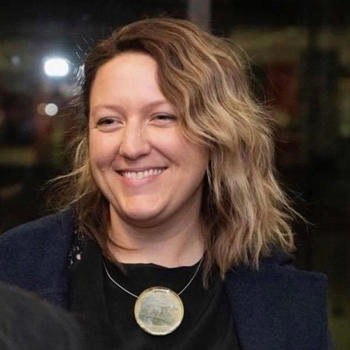
Naomi Hodgens, Wildlife Detection Dog Officer
Qualifications: Bachelor of Applied Science (Wildlife Biology & Conservation and Park Management), Cert III Dog behaviour & training, Bachelor of Science (Hons)
Thesis topic: Training effects on “social attraction” in dogs
Pronouns: She/her
Naomi is a Wildlife Detection Dog Officer for Zoos Victoria, training dogs to assist our field biologists in locating and monitoring some of Victoria’s most endangered species. Naomi received a Bachelor of Applied Science from the University of Queensland in 2008, with double majors in Wildlife Biology and Conservation and Park Management. Due to her special interest in animal behaviour, particularly canine behaviour, Naomi began investigating the possibilities of utilising dogs in wildlife conservation. In 2012, Naomi completed a Certificate III in Dog Behaviour and Training. Naomi completed her Honours degree at the La Trobe University, Anthrozoology research group in 2017, where her research explored the effects of different training models on the dog-human relationship. Thanks to her extensive experience working as a veterinary nurse and canine behaviour consultant, Naomi uses her knowledge to promote the best possible health and welfare practises for all canine members of the team.
Naomi has trained dogs to locate targets such as Spotted-tail Quoll scat, Fresh-water turtle nests, Greater-glider scat, Alpine Stone-fly as well as current projects for Zoos Victoria including Broad-toothed Rat detection as well as research into methodology for training detection of Frog odours and Oestrus and Lactation detection from Tasmanian Devil scat samples.
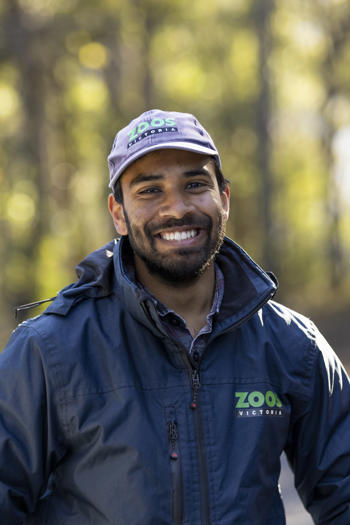
Sakib Kazi, Small Mammal Field Officer
Qualifications: Bachelor of Science, Master of Science
Thesis topic: 3D geometric morphometrics and the biogeography of Caribbean and South American amphisbaenians
Sakib has undertaken conservation management work for Parks Victoria, Museums Victoria, and now Zoos Victoria. His focus has been on the surveying of endangered Victorian mammals, such as Smoky Mice, Broad-toothed Rats, and Mountain Pygmy-possums. He has surveyed for Smoky Mice and Broad-toothed rats in the Central Highlands, and participated in Zoos Victoria's pioneering supplementary feeding program for Mountain Pygmy-possums in the Mt Hotham-Falls Creek area. Sakib is also Zoos Victoria's Chief Remote Pilot, and coordinates drone operations across the organisation, with a focus on their use for research and conservation.
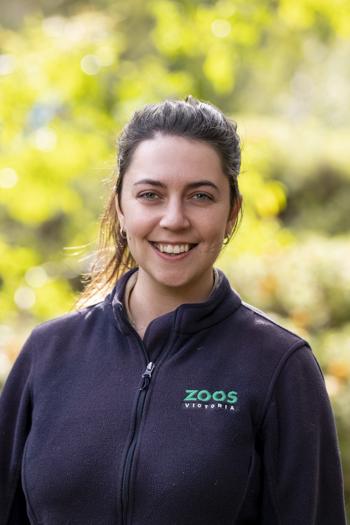
Dr La Toya Jamieson, Wildlife Detection Dog Officer
Qualifications: Bachelor of Science (Hons), PhD
Thesis topic: Improving wildlife detection dog selection, training and management
Pronouns: She/her
Dr La Toya Jamieson has been working with and researching wildlife detection dogs since 2015. During a trip to South Africa in 2014, La Toya first encountered wildlife detection dogs trained to detect cheetah, lions and wire snares, and has been passionate about this unique method for monitoring wildlife ever since. After completing her Bachelor in Applied Science (Wildlife Science major) she completed her Honours research on examining the success and efficiency of Northern quoll detection dogs with Amanda Hancock from Carnarvon Canines. During this research she was involved in field surveys for Northern quolls in Carnarvon National Park, where the detection dogs located evidence of quoll presence in an area where this population was believed extinct for almost a decade. La Toya continued her research and dog training, and completed her PhD on improving how we select, train and manage wildlife detection dog-handler teams. This research involved her training 12 dogs for detection work in a study comparing breeds, while training two other dogs to detect multiple target species. Her research also explored important traits and skills of detection dogs and their handlers, and what influence changing a dog’s handler can have on their welfare and working performance. La Toya has since joined the Zoos Victoria team in 2019, working in their Wildlife Detection Dog Program which is based at Healesville Sanctuary. La Toya has continued her research endeavours and is currently completing projects that explores novel roles for detection dogs in conservation, including oestrus and lactation detection dogs, and methods to streamline dog training and field deployment for emergency response situations.
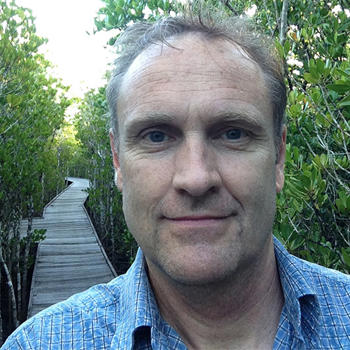
Dr Michael Magrath, Senior Research Manager
Qualifications: Bachelor of Science (Hons) PhD
Thesis topic: Parental behaviour and mating strategies of the fairy martin (Hirundo ariel)
Dr Michael Magrath is a wildlife and behavioural ecologist who works primarily on the conservation of Australian threatened species. Michael completed his undergraduate studies at the Australian National University and then a PhD at the University of Melbourne, graduating in 1998. Before joining Zoos Victoria in 2010, he lead a range of post-doctoral research projects on the behaviour, ecology, and conservation of wild bird populations, both in Australia and the Netherlands. Since starting with the zoo, he has been the Senior Manager of Research in the biological sciences. He specialises in the planning and evaluation of research and conservation actions for threatened species and has a particular involvement with the Orange-bellied Parrot, Helmeted Honeyeater, and Lord Howe Island Insect recovery programs. He has published in a broad range of areas and is a member of several animal ethics committees and science advisory groups.
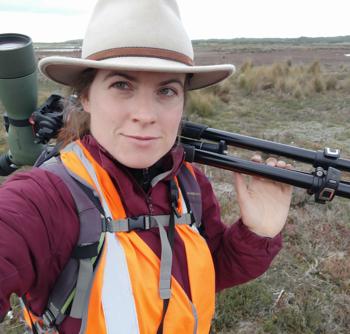
Dr Johanne Martens, Research Assistant
Qualifications: Bachelor of Science, Master of Science, PhD
Thesis topic: Ecology of Beak and Feather Disease Virus in wild Australian parrots; MSc: Analysis of physiological parameters in Mallards (Anas platyrhynchos) by use of novel data logger techniques; BSc: Ecology and behaviour of introduced Amazon parrots in the city of Stuttgart, Germany.
Published papers: https://orcid.org/0000-0003-1277-7602
Pronouns: She/her
Dr Johanne Martens has over a decade of conservation-focused field experience in Australia and overseas. She started her career at Zoos Victoria in the Orange-bellied Parrot (OBP) recovery program in 2018 while conducting her PhD research on beak and feather disease virus at Deakin University, and has been involved in the OBP program ever since. She is passionate about birds and conservation, and while now specialised in Orange-bellied Parrot recovery, has experience with a variety of other species. After working as Post-fire Assessment Coordinator - Cryptic Heathland Birds at BirdLife Australia, she joined the OBP recovery team on a full-time basis, and has significant expertise in field research, data management and analysis, project planning, grant writing and publication. She holds a service role as Regional Coordinator for BirdLife Australia's Swift Parrot Search. Johanne enjoys public outreach, and has given guided tours and public talks about birds and conservation research in multiple languages. Her participation in the podcast 'Wildlife, Cake and Cocktails' has won her an award for best scientific communication, and she has won several awards for her conference presentations. She regularly writes articles for bird magazines.
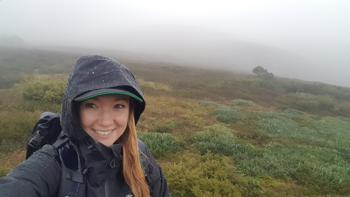
Dr Marissa Parrott, Senior Conservation Biologist
Qualifications: Bachelor of Science (Hons), PhD, Cert II Environmental Sustainability, Cert III Captive Animals
Thesis topic: Female choice and breeding success in a small carnivorous marsupial, the agile antechinus (Antechinus agilis). See published papers
Pronouns: She/her
Dr Marissa Parrott completed her undergraduate studies at the University of Melbourne, Australia, and University of Pretoria, South Africa, before completing her PhD on mate choice and breeding success in the Agile Antechinus. Marissa's post-doctoral research examined assisted reproduction and novel techniques to maximise breeding success in captive breeding colonies of marsupials across Australia. In 2007, Marissa joined Zoos Victoria to work on the breeding program for the critically endangered Mountain Pygmy-possum at Healesville Sanctuary. She joined Zoos Victoria’s Wildlife Conservation and Science Department as their Reproductive Biologist in 2009, and became their Senior Conservation Biologist in 2023. Marissa works across Healesville Sanctuary, Werribee Open Range Zoo, Melbourne Zoo, Kyabram Fauna Park and a variety of field locations to improve threatened species reintroduction and captive breeding success, and lead reproduction, wildlife emergency and cryopreservation research projects. She has 24 years’ experience in wildlife field work, five years in molecular genetics laboratories, over 20 years in captive breeding programs, and is an accomplished media and science communicator. Marissa has also been involved in a variety of wildlife and conservation programs across Australia, Asia, Africa and the Americas. Marissa has been named an Australian Science Hero by the Office of the Chief Scientist and was part of the largest ever all-woman expedition to Antarctica with Homeward Bound. She sits on multiple national and international specialist groups, is a member of five species Recovery Teams, including as the Chair of the Broad-toothed Rat Recovery Team, and is the Vice President of the Australian Mammal Society. Marissa has a strong focus on endangered native marsupial, rodent and frog species to aid Zoos Victoria’s commitment that no Victorian terrestrial vertebrate species will ever go extinct.
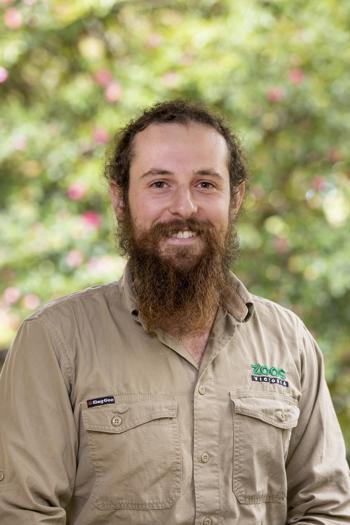
Dr Nick Rutter, Willdife Detection Dog Officer
Qualifications: Bachelor of Psychology (Hons), PhD
Thesis Topic: Developing and evaluating a volunteer-based model for consevation detection dog training and deployment
Pronouns: He/Him
Nick is a Wildlife Detection Dog Officer at Zoos Victoria. Nick has recently submitted his PhD which he completed at La Trobe Univeristy where he developed and evaluated a volunteer-based model of training detection dogs for wildlife detection roles. As part of this program, Nick oversaw detection dogs training to find evidence of Greater Gliders, Alpine Stoneflies and freshwater turtle nests. Nick's research has contributed to our understanding of how we can effectively train and prepare wildlife detection dogs for working in different environments and in different search scales. His work has also explored detection dog's tendencies to display olfactory generalization to similair yet seperate species that they have been trained to detect. This work may help inform how we can train dogs to find espicially rare species, from which it can be difficult to source odour samples required to train dogs. Nick has also worked with his own detection dog, Daisy, in professional detection dog/ consultancy roles since 2018. Nick joined Zoos Victoria's Willdife Detection Dog team in August, 2021 and is excited to work with Zoos Victoria's threatened species biologists to continue to train and deploy detection dogs to help find evidence of some of Victoria's most threatened and endangered species. Nick also looks forward to continuing to publish research that helps improve our understanding of how we can work with these amazing dogs to help us fight extinction.
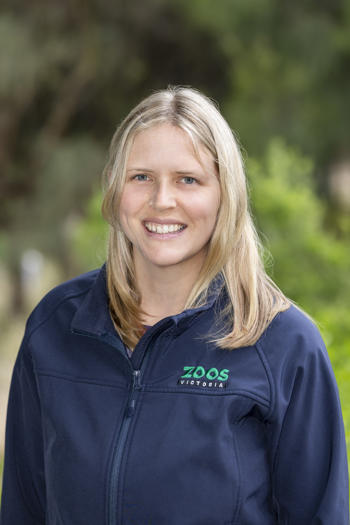
Dr Kat Selwood, Threatened Species Biologist
Qualifications: PhD (Ecology), Bachelor of Environmental Science (Hons)
Thesis topic: The significance and future prospects of floodplains for birds in a drying climate. See published papers
Pronouns: She/her
Dr Katherine Selwood (Kat) is an ecologist, whose work has mostly focused on the ecology and conservation of Australia’s birds at a landscape level. At Zoos Victoria, Kat focuses on the planning and implementation of conservation programs for our bird species. Kat was previously a postdoc with the NESP Threatened Species Recovery Hub where she worked on spatial conservation planning for Christmas Island, approaches to biodiversity offsetting, and identifying threatened bird habitat in the Murray-Darling Basin. Her PhD and later postdoctoral work focused on the effects of the Millennium drought on woodland birds, with a particular focus on floodplains and their potential as refugia. Kat is an honorary research fellow at the University of Melbourne , continuing to contribute to research on species conservation and spatial ecology. Prior to her PhD, Kat worked for the federal environment department in a number of policy and project roles, including threatened species recovery, species discovery and environmental water.
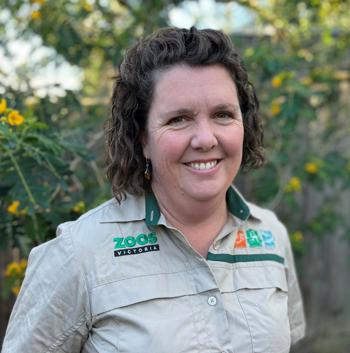
Jessie Sinclair, Invertebrate Conservation Coordinator
Qualifications: Bachelor of Science (Hons), Graduate Diploma of Education (Secondary)
Pronouns: She/her
Jessie has been working with all things Invertebrates for over 20 years, both regionally and internationally. She joined Zoos Victoria in 2014 initially undertaking husbandry care and coordination of Melbourne Zoos Butterfly House as well as working with the insurance population of Lord Howe Island Stick Insects. She now works with the Threatened Species Team to facilitate strategic direction of the Zoos Fighting Extinction Invertebrate Conservation programs. Jessie is an author of the book Bugs Alive: a guide to Keeping Australian Invertebrates, one of the only books to cover this highly specific yet incredible topic.
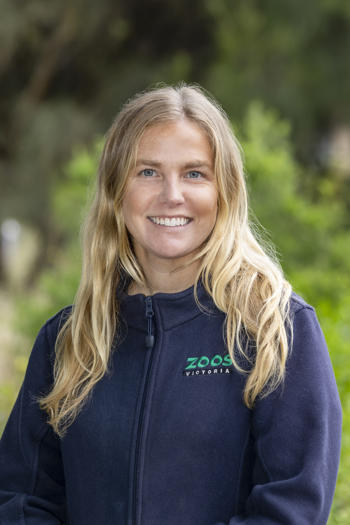
Dr Sally Sherwen, Director of Wildlife Conservation and Science
Qualifications: Bachelor of Science, Master of Science (Hons), PhD
Thesis topic: The visitor effect: An investigation into the impact of visitors on the behaviour and welfare of zoo animals
Pronouns: She/her
Dr Sally Sherwen is the Director of Wildlife Conservation and Science at Zoos Victoria (the Conservation Organisation charged with the operation of Melbourne Zoo, Werribee Open Range Zoo and Healesville Sanctuary in Australia). Sally leads a dynamic team of scientists and specialists that develop and deliver strategic programs in conservation, animal welfare, education and environmental sustainability. Sally has a PhD in Animal Welfare Science and in previous roles has established an evidence-based research program in animal behaviour and welfare science, developed and implemented an institutional welfare assessment tool to advance welfare standards and designed and ran collaborative training courses with several NGOs for industry professionals and community groups.
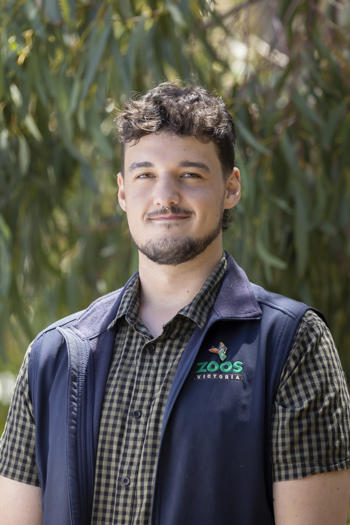
Ryan Archer, WCS Intern
Qualifications: Bachelor of Science (Zoology)
Thesis topic: The visitor effect: An investigation into the impact of visitors on the behaviour and welfare of zoo animals
Pronouns: He/they
Ryan recently graduated from the University of Melbourne with a Bachelor of Science, majoring in Zoology with breadth in Indigenous knowledges and fire ecology. Across his time at University, he has had a wealth of experience across various fields, including animal welfare policy and legislative reform at VicGov, previous threatened species conservation internships within WCS, and also work with the University in indigenous STEM outreach and education. His experience and passion for Australia's native ecosystems, as well as his connection to country as an Aboriginal man, uniquely equip him for aiding in conservation initiatives across a variety of species. Past field work has seen Ryan focus on native rodents, while recent time spent in the Danetree Rainforest provided experience working with and studying the diel behaviours of terrestrial invertebrate species. Ryan is excited to return to the team, this time as a Ballieu Myer Intern for 2025, where he looks to not only improve his own research and conservation knowledge and skills, but contribute to ongoing wildlife conservation and recovery initiatives.
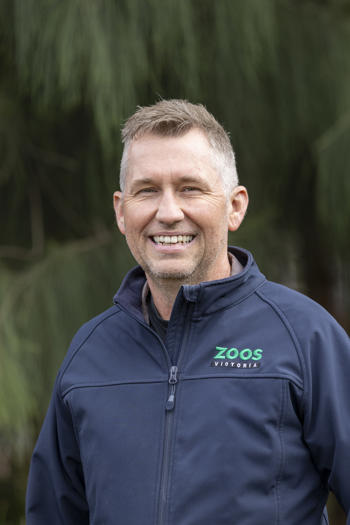
Garry Peterson, General Manager Threatened Species
Qualifications: Bachelor of Biological Science (Hons)
Thesis topic: Ecology, evolution, and conservation of the Eulamprus quoyii complex in central south western Victoria.
Pronouns: He/him
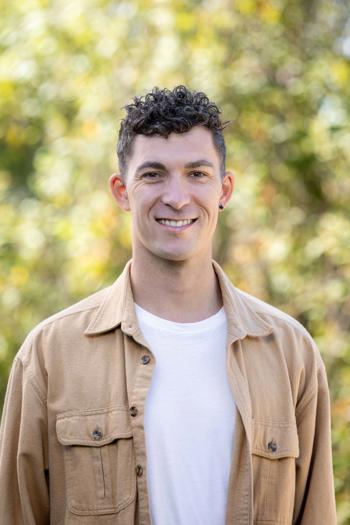
Ryan McDonough, Project Manager
Qualifications: Diploma of Project management
Pronouns: He/him
Animal Welfare and Conservation Ethics
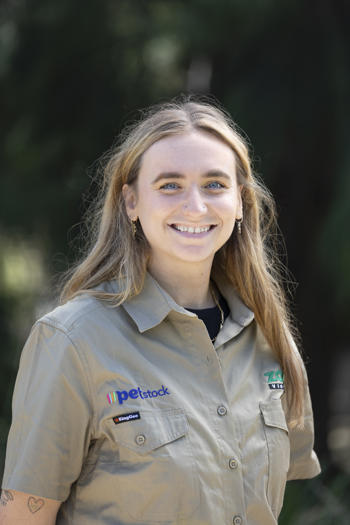
Amy-Rose Doornbusch, Animal Welfare Support Officer
Qualifications: Bachelor of Science (Zoology), Bachelor of Music (Jazz)
Pronouns: She/her
Amy-Rose joined Zoos Victoria in 2017, initially in the role of an Animal Welfare Research Assistant. Since then, she has collaborated with various teams across Zoos Victoria's properties, gathering behavioural insights on a diverse array of species to inform evidence-based decision-making. Amy-Rose is part of the team at the forefront of zoo animal welfare research, supporting the implementation of reactive, proactive and strategic projects, developing protocols and ethograms, as well as facilitating training sessions for staff and volunteers on how to understand and gather data on animal behaviour - all while keeping up to date with the current science and how we can apply it at Zoos Victoria. Ultimately, Amy-Rose is committed to fostering collaborative relationships with internal and external stakeholders to promote positive welfare outcomes for all animals.
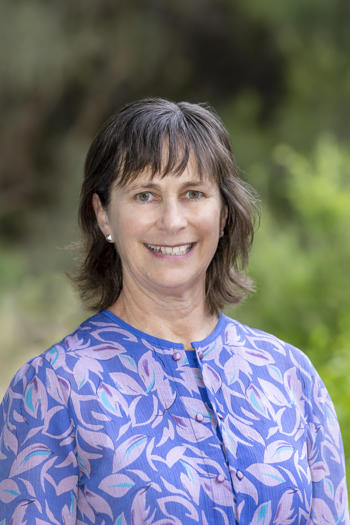
Amanda Embury, Senior Manager Animal Welfare Development
Qualifications: Bachelor of Science (Hons) (Zoology), Diploma of Education, Graduate Certificate in Competitive Systems and Processes, Cert IV in Training and Assessment, Graduate Certificate in Environment and Heritage Interpretation
Thesis topic: Comparison of the behaviour of zoo and wild gibbons
Pronouns: She/her
Amanda's journey at Zoos Victoria commenced in 1984 as Melbourne Zoo’s Records Officer in 1984. She was motivated to work at the zoo due to a desire to improve the lives of the animals housed there. Since then, she’s worked with multiple teams at, including life sciences, education, visitor experience, human resources, major projects, and Wildlife Conservation and Science. Research comparing the behaviour of wild and zoo gibbons, sparked an interest in enrichment and an supported an ongoing commitment to welfare of zoo animals. Her training in zoology and interpretation was applied to the design of animal housing and visitor experience for Melbourne Zoo's Gorilla Rainforest, Trail of the Elephants and Orangutan Sanctuary. She’s active in our regional species management programs, being a species co-ordinator, TAG Co-Convener and is Chair of the regional Zoo and Aquarium Association's Animal Management Committee. She has a broad understanding of zoo operations – during her journey at Zoos Victoria she's led various diverse projects. These include developing life sciences policies and procedures, a Tool to assess species housed at our four zoos, contributing to regional and global approaches to species planning and management, and unexpected tasks such as purchase and transfer of peanuts and other food items for the elephants when they were being quarantined on Cocos (Keeling) Islands. During her time working here, Amanda has seen many positive changes in our approach to animal care and housing and is keen to continue to lead and support these developments.
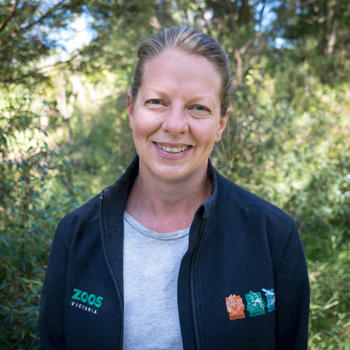
Sue Jaensch, Animal Behaviour Specialist
Qualifications: Bachelor of Science (Zoology), Graduate Certificate in Competitive Systems and Processes, Cert IV in Training and Assessment, Graduate Certificate in Applied Behaviour Analysis
Pronouns: She/her
Sue joined the Zoos Victoria team in 2008, working as a Zoo Keeper at Healesville Sanctuary, then as a Life Sciences Manager and Animal Training Coordinator. Prior to working at Zoos Victoria, Sue spent ten years working at RSPCA Victoria where she was their first Animal Training and Behaviour Coordinator. As the Animal Behaviour Specialist, Sue coordinates the strategic objectives and procedures for animal enrichment and animal training initiatives at Zoos Victoria to ensure a continued improvement for the wellbeing of the animals. Working with the property Animal Training Coordinators, Sue is responsible for the development of learning modules in animal behaviour for delivery to zoo keeping staff. Her portfolio includes animal behaviour concerns, and she oversees the use of Functional Assessment Investigations across our three zoos. Her strengths are problem solving, group facilitation, system thinking and creativity and she is passionate about promoting the wellbeing of both the animals and staff she works with. Sue's interest in this area has led her to pursue further education and she is currently completing a Masters in Applied Animal Behaviour and Welfare at Virginia Tech University.
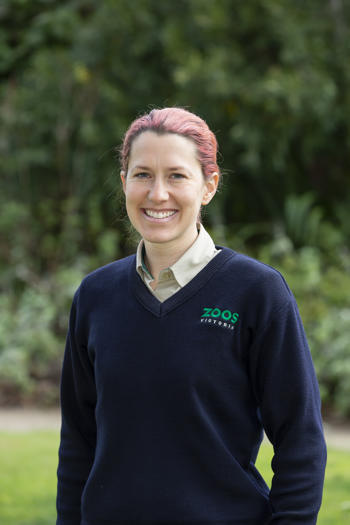
Fiona Melvin, Senior Manager Zoo Animal Welfare Research
Qualifications: Bachelor of Science (Hon), Certificate III in Captive Animals, Graduate Certificate in Captive Vertebrate Management
Pronouns: she/her
Fiona leads the Zoo Animal Welfare Research team to deliver strategic animal behaviour and welfare initiatives. With 15 years of service within the organisation, her journey has encompassed an eclectic range of roles, from Zookeeper to Project Manager, and most recently, leadership positions. Fiona’s leadership record is marked by an unwavering commitment to evidence-based decision-making underpinned by a deep passion for animal welfare science. As a people centric leader, she focuses on empowering team members to achieve their full potential and prioritises fostering a positive team culture. Her own journey of learning, including a Bachelor of Science with Honors and more recently completion of the Homeward Bound program, has laid a firm foundation for strategic planning and development. Fiona is committed to enhancing the field of animal welfare through continuous improvement and ongoing contributions to Zoos Victoria’s mission in the fight against extinction to promote a future rich in wildlife.
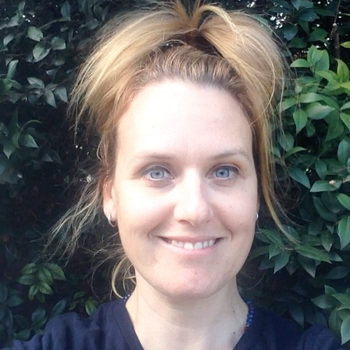
Katherine Quinn, Life Sciences Project Officer
Qualifications: Bachelor of Science (Zoology); Graduate Diploma of Education
Pronouns: She/her
Katherine Quinn has been working with Zoos Victoria for more than a decade. Over this period Katherine has worked extensively with African lions (among others), utilising the different programs Zoos Victoria offers to enhance their welfare and individual needs through various projects and fellowships. With this passion, she seeks to promote the welfare and wellbeing of the many and varied individuals that call Zoos Victoria home, promoting opportunities for them to thrive. She loves enhancing her own understanding through learning from and advocating for animals.
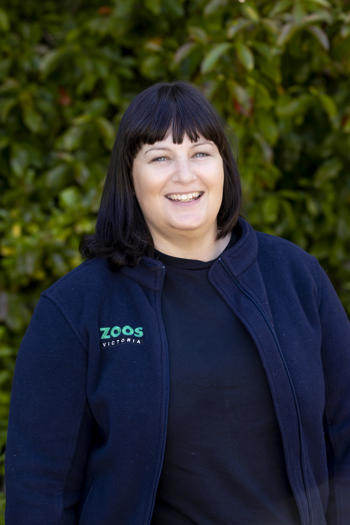
Fiona Ryan, Senior Manager Wildlife Welfare Programs
Qualifications: Certificate IV Veterinary Nursing, Diploma of Management, Post-Graduate Certificate International Animal Welfare, Ethics and Law, Post-Graduate Certificate One Health
Pronouns: She/her
Fiona leads our programs aimed to improve the welfare of free ranging wildlife across the state, including the Veterinary Outreach Program, supporting the Conservation Regulator in their work with seized and surrendered wildlife, and our preparedness for wildlife emergency response during disasters, such as bushfire. In this role, Fiona represents Zoos Victoria as the DEECA liaison, providing wildlife advice, and supporting the DEECA led preparedness for response to wildlife impacted by emergencies. Fiona joined Zoos Victoria in 2004, as part of the original team within the Australian Wildlife Health Centre. Fiona is a professional zoo and wildlife veterinary nurse, with more than 20 years’ experience in the field, and has worked within each of Zoos Victoria’s dedicated wildlife hospitals. Her experience with wildlife has extended internationally working for NGO’s in China, Southeast Asia and the Middle East, undertaking the rescue and rehabilitation of wild animals impacted by the illegal trade in wildlife, and supporting local capacity building. Fiona draws on her expertise in the veterinary assessment, care and rehabilitation of wildlife and broad experience in responding to a range of scenarios impacting wildlife, including day to day wildlife emergencies, and disasters, such as bushfire and flood, to inform her work. Fiona’s aim is to work with our stakeholders to generate a resilient shift using evidence-based decision making, for improved welfare outcomes for free ranging wildlife in Australia.
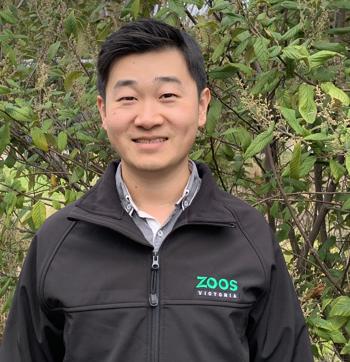
Dr Tian Chen, Wildlife Welfare Programs Veterinarian
Qualifications: Bachelor of Science, Doctor of Veterinary Medicine, PhD (Veterinary Science), MANZCVS (Epi)
Pronouns: He/him
Thesis topic: Chronic phalaris toxicity in macropods
Dr Tian is a wildlife veterinarian who is part of the wildlife outreach and emergency response team. He graduated as a veterinarian from The University of Melbourne and worked initially as a companion animal clinician. Over time, he changed his career focus towards one health, research and wildlife conservation. His PhD research was a collaboration with Parks Victoria aimed at investigating the epidemiological factors of the emerging wildlife disease chronic phalaris toxicity, during which he also became a member of the Australian and New Zealand college of veterinary scientists in the chapter of epidemiology. Over the past ten years, Tian has also worked closely with a range of local wildlife rescue organizations and shelters, often volunteering as a rescuer or wildlife veterinarian for displaced, sick and injured native wildlife. Tian is also part of the state wide wildlife emergency support network, and participated in wildlife welfare assessments as a field veterinarian bushfires and floods.
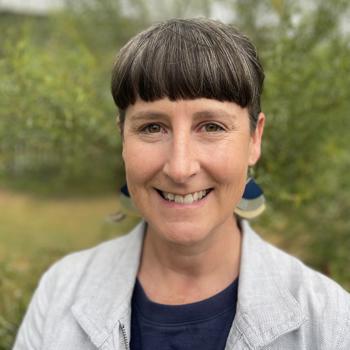
Dr Georgia Garrard, General Manager Animal Welfare & Conservation Ethics
Qualifications: Bachelor of Science/Bachelor of Arts (Hons), PhD (Conservation Science)
Thesis topic: Dealing with imperfect detectability in biological surveys for native grassland management
Published papers: https://scholar.google.com/citations?user=kMiSpTkAAAAJ&hl=en&oi=ao
Pronouns: She/her
Georgia is an interdisciplinary conservation scientist who has been conducting research at the interface of biodiversity conservation and policy since 2005. A quantitative ecologist by training, her research has drawn on the fields of conservation science, conservation psychology, strategic communications and decision science to address critical conservation challenges, particularly those related to engagement of people with nature and conservation of threatened species in cities. At Zoos Victoria, Georgia works with a team of experts to integrate the Zoos' animal welfare, social science and conservation work, ensuring it is underpinned by science. ensuring it is underpinned by science.
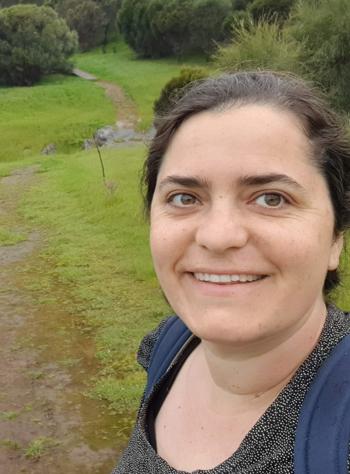
Emily McLeod, Senior Social Scientist
Qualifications: Bachelor of Science (Psychology/Psychophysiology), Bachelor of Science (Zoology), Master of Science (Zoology)
Thesis topic: The influence of personality on brood care and nest defence in the cooperatively breeding Superb Fairy-wren (Malurus cyaneus)
Published papers: https://scholar.google.com.au/citations?user=VBIhj_kAAAAJ&hl=en
Pronouns: She/her
Emily is a conservation social scientist with an interdisciplinary background in psychology and zoology. She leads the social science research program at Zoos Victoria and is a doctoral candidate at the University of Queensland. Her research explores how to connect people with wildlife and nature, with the goal of fostering pro-biodiversity behaviours in the broader community. Her current research focuses on a range of topics including cat containment behaviours, drivers of sustainable coffee consumption and human-wildlife co-existence. Emily’s PhD explores the factors influencing wildlife tourism behaviour, with a focus on promoting responsible tourism that supports positive conservation and animal welfare outcomes.
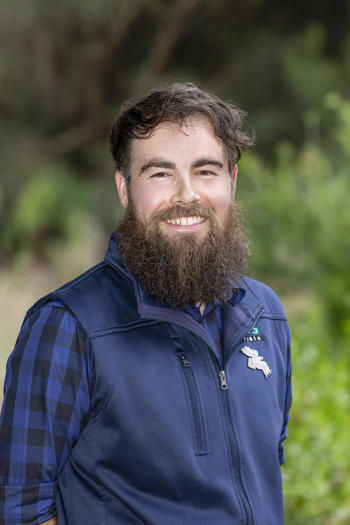
Pete Lancaster, Senior Manager Community Conservation
Qualifications: Bachelor of Science (Hons)
Pronouns: He/him
Pete has spent nearly 15 years connecting a range of audiences with nature, as well as helping to develop and facilitate opportunities for people to take conservation action. After obtaining a BSc (Hons) in Animal Behaviour, Pete spent almost a year in South Africa and worked with the National Parks’ People and Conservation Department. Realising just how crucial an engaged and active human community is to success in conservation, he changed focus and began his career in behaviour change. He has been involved in the development and front-facing delivery of community conservation programs both locally and internationally and loves seeing the light-bulb moment people have when they realise they can make a difference to the world around them.
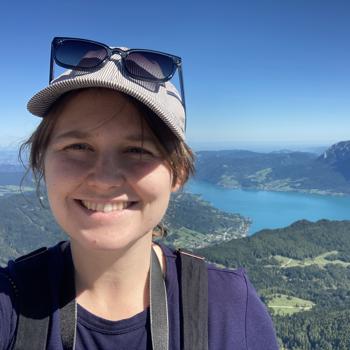
Dr Emily Gregg, Conservation Campaigner
Qualifications: Bachelor of Science (Zoology/ Ecology), Master of Science (Zoology/ Ecology), PhD (Conservation Social Science)
Thesis topic: A strategic communication approach to biodiversity conservation. See published papers
Pronouns: She/her
Emily is passionate about engaging individuals and communities with nature and empowering them to take meaningful action for local and global biodiversity. As a trained conservation social scientist, Emily has a particular interest in applying communication and social science approaches to ensure the persistence of vibrant ecosystems alongside positive and equitable outcomes for people. Since her career shift from ecology to social science, Emily has worked with numerous conservation and environmental organisations on various research and engagement projects, including work on community and stakeholder engagement, social research, and policy change.
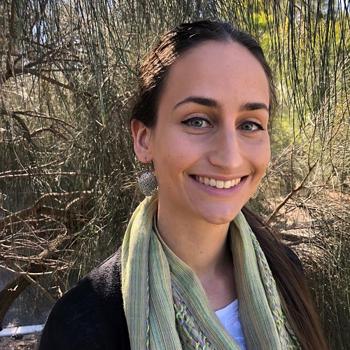
Estelle Van Hoeydonck, Conservation Campaigner
Qualifications: Bachelor of Arts (Geography and International Development)
Pronouns: She/her
Estelle is passionate about igniting the spark of interest that many people have in wildlife and converting it into conservation action. As a Conservation Campaigner, Estelle works in a small dynamic team on Zoos Victoria’s many and varied behaviour-change campaigns, all of which work towards eliminating specific threats to wildlife. Additionally, Estelle works on Zoos Victoria’s citizen science initiative, Moth Tracker. Estelle’s prior experience has been in fundraising and philanthropy, encouraging donations in the conservation, international development and climate justice fields, with a particular focus on regular giving programs. Throughout Estelle’s career her central aim has always been to connect the community with ways to make a meaningful difference in solving environmental or social issues.
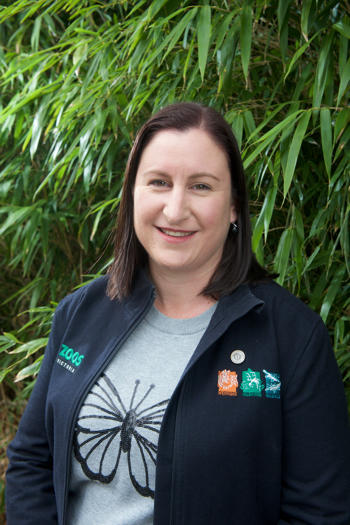
Lian Wilson, General Manager Community Conservation & Learning
Qualifications: Bachelor of Science (Zoology), Graduate Diploma of Education
Pronouns: She/her
Lian is the General Manager of Community Conservation for Zoos Victoria and passionate about harnessing the power of people to secure a sustainable future for all. Lian leads a team of conservation specialists that work through the community to foster emotional connections, create advocates for wildlife, and facilitate pro conservation behaviours delivered through award winning campaigns and education programs. Lian is committed to growing the potential of young people, to ensure our future has leaders that champion wildlife conservation, and supporting organisational change to secure a future for wildlife. Lian has a Bachelor of Science (Marine Zoology) and Graduate Diploma of Education.
Lian is also a member of the Victorian Department of Education Strategic Partnerships Program Advisory Group and contributes to various Victorian DEECA expert groups and panels that foster collaboration and connecting the Victorian community to nature.
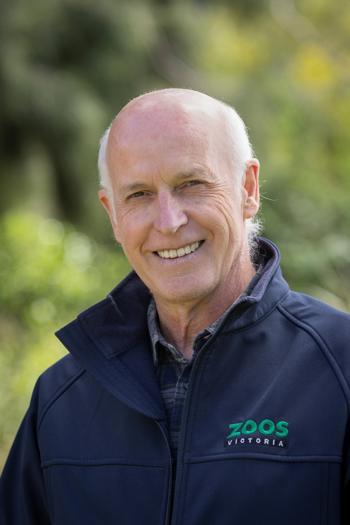
Chris Banks, International Conservation Manager
Qualifications: Bachelor of Science, Diploma of Zoo Animal Management, Cert III – Captive Animal Management
Pronouns: He/him
Chris Banks has worked in zoos since 1969, based mostly at Melbourne Zoo. From 1969 to the late 1980s, reptile and amphibian husbandry and management was a major focus, as keeper and curator. He initiated Zoos Victoria’s international conservation engagement in 2000, commencing with a suite of project support in south-east Asia in 2000. Chris transferred to Zoos Victoria’s Wildlife Conservation & Science Department in 2012 and now manages international conservation partnerships in Papua New Guinea, the Philippines, Uganda, Rwanda and French Polynesia; and two sister zoo partnerships in Papua New Guinea and Uganda. His portfolio also includes Zoos Victoria’s annual international conservation grants program.
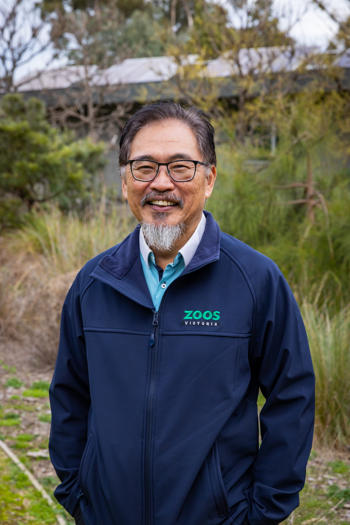
Kiam Yoong, Senior Manager Environmental Sustainability
Qualifications: Bachelor of Engineering (Civil), Master of Engineering (Cleaner Production), Certificate IV in Training and Assessment, Graduate Certificate in Competitive Systems and Practices
Lead Auditor in Environmental Management Systems.
Pronouns: He/him
Kiam Yoong is an Environmental Sustainability professional passionate about a world in harmony with the natural environment. His expertise and key work areas include:
- Development of environmental sustainability policies and strategies
- Developed and implemented ISO 14001:2015 Environmental Management System
- Climate Change mitigation taking into demand side management (eg resource efficiency), alternative energy sources (eg renewables) and carbon sinks (eg avoided deforestation offsets)
- Carbon Accounting and certification to Climate Active carbon neutral certification
- Zero Waste to Landfill management plans
- Resource Efficiency
- Environmental, Social and Governance Procurement
Kiam is also the Convenor - Environmental Sustainability Specialist Advisory Group for the Zoo Aquarium Association and a member of the Task Force on Single-Use Plastics and the Carbon Guide for World Association of Zoos and Aquariums.
In 2022, Kiam was added into the Blooloop 50 Zoo & Aquarium Influencer List.
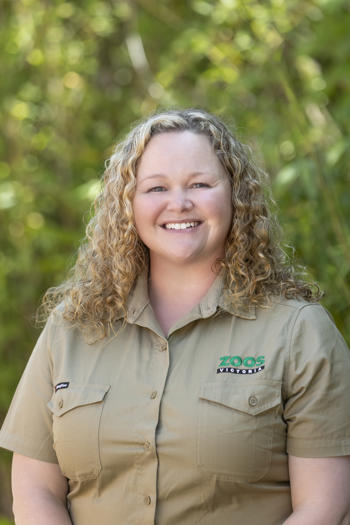
Nicole Cowan, Education Programs Coordinator
Qualifications: Bachelor of Science (Zoology), Diploma of Education (Secondary), Masters of Environment and Sustainability (Leadership)
Pronouns: She/her
Nicole is an experienced educator in both secondary and tertiary education. Her passion for wildlife conservation and education led her to complete her Bachelor of Science (zoology/animal biology) and a Graduate Diploma in Education at The University of Melbourne. She then shared her enthusiasm for the natural world teaching in secondary schools before moving on to become a teaching associate in the Education Faculty at Monash University. At the same time, Nicole was undertaking her Masters in Environment and Sustainability, with a focus on leadership in sustainability. Her teaching associate role allowed her to engage with pre-service teachers to encourage the inclusion of conservation and sustainability in their teaching, thereby helping to create a new generation of passionate conservationists. Nicole joined Zoos Victoria as the Education Programs Coordinator in October 2021 and is excited to bring all her interests together to help shape the direction of conservation education and support students from all walks of life to act for wildlife.
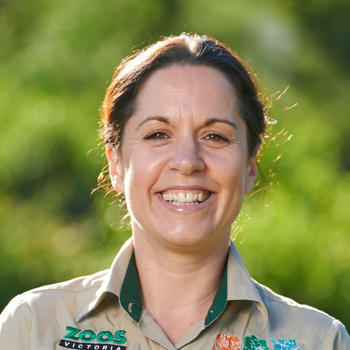
Cheryl Laks, Education Innovation Leader
Qualifications: Bachelor of Science (Biological Science), Bachelor of Education (Primary & Secondary), Cert IV Veterinary Nursing
Pronouns: She/her
Cheryl Laks is renowned for her unwavering commitment to nurturing the potential of young minds as the Education Innovation Leader at Zoos Victoria. With a Bachelor of Teaching (Primary and Secondary) and a profound background in environmental education, Cheryl channels her passion into driving transformative change within her organisation. She not only spearheads the strategic development and expansion of Zoos Victoria’s youth engagement initiatives but also ensures that every interaction leaves a lasting impact on the lives of thousands of young Victorians annually. Cheryl’s dedication to inspiring the next generation of leaders is evident in her delivery of innovative youth programs such as Youth Leadership, Youth Advisory Committee, and a new Careers Expo. Beyond her teaching qualifications, Cheryl's journey in fostering community participation and animal stewardship is reflected in her Bachelor of Biological Science and extensive career in Veterinary Nursing. Cheryl's approach to youth engagement is deeply personal, marked by her genuine dedication, expertise, and unwavering commitment to fostering positive change for the future.
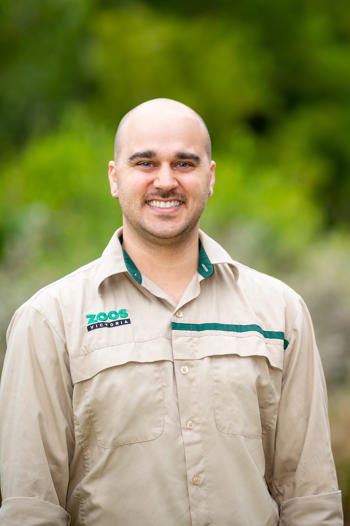
Chris Vella, Fighting Extinction Schools Coordinator
Qualifications: Bachelor of Teaching, Graduate Diploma of Geography Education
Pronouns: He/him
Chris is an educator with experience in classroom teaching, environmental education, consulting and project management. He has also led curriculum and process in a leading Australian educational not-for-profit. Chris began his career as a visual arts and geography teacher but through the joys of casual teaching found that what he really loved was creating meaningful education programs regardless of the topic or year level. And, what is more meaningful than conservation education? Being a bit of a nerd, Chris is always interested in using technology to make education more authentic and equitable. As Fighting Extinction Schools Coordinator Chris gets to work with the incredible Zoo Education Team creating and running programs that assist and empower teachers to take conservation education beyond their zoo experience. From leading Zoos Victoria’s first Digital School Showcase (flip.com/feschools) to beginning a Schools Mentoring Program, Chris aims to support every Victorian teacher to become a Fighting Extinction Educator! Also, Chris probably reads too many comic books…
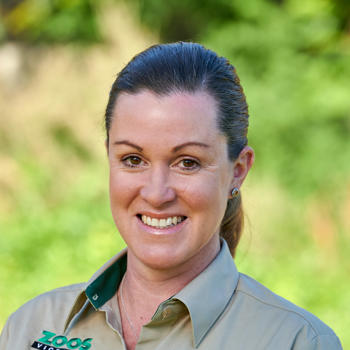
Mel Wyatt, Senior Manager Education
Qualifications: Bachelor of Applied Science (Conservation & Park Management), Graduate Bachelor of Education
Pronouns: She/her
Awarded one of the top 50 Most Influential Educators for 2022 (The Educator Australia), Mel has over 25 years experience in outdoor cultural institutions. Mel's experience in the landscape of education in the context of zoos, parks and gardens is extensive. She is committed to continuously improving the vital role formal and informal programs play in the development of our relationships with nature and the creation of pro-conservation behaviour; mental and physical wellbeing; and the altruistic values that support broader community wellbeing. The experience gained through her roles in formal education programs, visitor experience and interpretation, volunteer management and accredited training have allowed her to develop a clear professional philosophy on the framing of education delivery that is positive, constructive, collective, solution-focused and optimistic. Mel is a leader that prides herself on 'leading from behind' and bringing out the best in her team to produce confident high performers that fully contribute to a collective success.
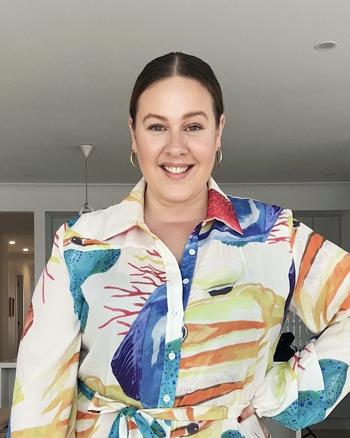
Shauna Ryan, Education Programs Assistant
Qualifications: Bachelor of Education (Primary)
Pronouns: She/her
With a Bachelor of Education (Primary) and five years of teaching experience, Shauna brings a unique blend of expertise in education, marketing, social media, and events to the Wildlife Conservation and Science team. Passionate about inspiring the next generation, Shauna excels at creating engaging initiatives that foster a love for conservation, empowering young minds with the skills to protect our planet. Shauna's dynamic background and innovative approach make her a valuable asset in advancing Zoos Victoria's mission of Fighting Extinction.
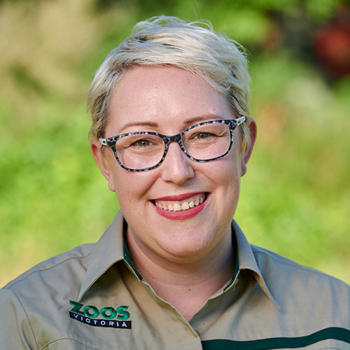
Kirsty Costa, Senior Manager of Conservation Impact (acting)
Qualifications: Bachelor of Arts (English & Media), Bachelor of Teaching, Certificate IV in Training and Assessment
Pronouns: She/her
Kirsty is known for her expertise in driving transformative change within teams, organisations and communities. Leveraging her education expertise, she specialises in translating complex tools and theories in order to enable teams to strategically design, activate and assess their projects. Kirsty's career has been marked by significant contributions in both the environmental and education sectors, from delivering on-the-ground innovation to leadership roles at an executive level. Her commitment to conservation extends beyond her professional life. She hosts a popular birdwatching podcast and occasionally shares the stage with Al Gore as part of the Climate Reality initiative. Kirsty has a "this is for you" approach to workshops and keynotes, creating engaging experiences that meet the needs of different learners.
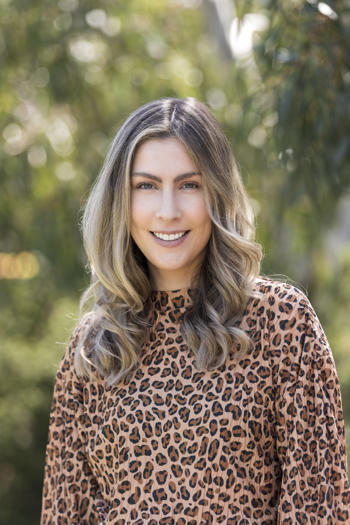
Tessa McLachlan, Senior Manager Conservation Impact
Qualifications: Bachelor of Business (Tourism Management), Master of Business Administration
Pronouns: She/her
Tessa has always been passionate about wildlife with an affinity for primate conservation. In 2013, she had a life-changing experience working with orangutans that guided her career to land at the intersection of wildlife conservation and business. Today, she brings a holistic lens, holding an MBA in Tourism Management, extensive experience in the sector, and possesses a thorough understanding of contemporary conservation science concepts in animal welfare, community conservation campaigning, and environmental sustainability. In 2020, she established Zoos Victoria’s consultancy, sharing the organisations conservation frameworks with like-minded organisations to booster environmental outcomes. In her role as Conservation Impact Manager, Tessa advocates for industry change by championing conservation practices that protect our natural world. She has created and delivered global training programs and led strategy sessions for the IUCN. She is a natural innovator with demonstrated experience in change management integration across dynamic working environments, including start-up concepts and business acquisitions. In 2022, Tessa led the transition of Kyabram Fauna Park into the Zoos Victoria portfolio, welcoming it as it fourth zoo.
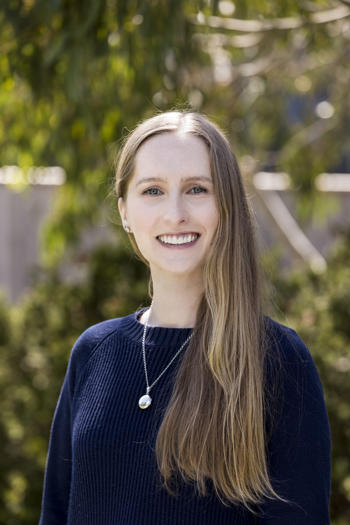
Steph Capley, Conservation Support Officer
Qualifications: Bachelor of Science, Graduate Diploma of Education (Primary), Diploma of Wellness Leadership (Workplaces)
Pronouns: She/her
With a Bachelor of Science (Zoology) and a Graduate Diploma of Education, Steph has always known that her passion lies in a mix of animals and education. This has seen her work in many different industries from Vet Nursing, to farming, to school incursion work, and now to wildlife conservation. Whether it be the creation of behaviour change content or delivering workshops, it’s the diversity that she thrives in. After joining Zoos Victoria in 2014, Steph has worked in the Keeper Kids facilitated play area, provided support for the Volunteer Program and now works in the Wildlife Conservation and Science team, supporting the five arms of the portfolio in their diverse projects whilst also focusing specifically on Conservation Impact. Steph has completed a Diploma of Wellness Leadership for Workplaces and enjoys leading wellness initiatives within the broader Zoos Victoria team. She is passionate about equality and inclusion in the workplace and sit on the Gender Equality Action Plan Committee whilst also coordinating LGBTQ events.
